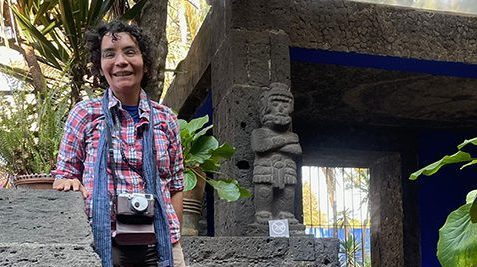Animals losing their habitats, humans losing their homes, deforestation and land grabbing are all well-documented issues in the Amazon — but some of their drivers have yet to be investigated.
A newly established Fulbright Scholar Program called Fulbright Amazonia supports an international network of scientists who will carry out research dedicated to protecting the diverse wildlife and indigenous communities of the Amazon. Evolutionary biologist and Stony Brook University Professor Liliana M. Dávalos, PhD, will be part of this select group of international experts seeking to find solutions to some of the Amazon region’s ecological and environmental problems.
Dávalos, Professor of Conservation Biology in the Department of Ecology and Evolution in the College of Arts and Sciences, and the Fulbright Amazonia Scholar in Environmental Science, joins this first-ever cohort of scholars with research set to begin in July. Fulbright announced a total of 16 Fulbright Amazonia Scholars.
Under the fellowship, Dávalos will conduct research to study the dynamics of cocaine trafficking in the Amazon rainforest and assess the associated impact on land use.
The project will combine historical research with data analysis to measure the breadth of cocaine trafficking’s influence on long-standing environmental and humanitarian crises. The findings could have actionable impacts on regional policies throughout the Amazon. Dávalos believes the study will proved to be key to promoting sustainability within political and socioeconomic landscapes.
“Trafficking dynamics and their relationship to land use in the Amazon remain unexplored,” she said. “By providing the first quantitative analyses of this kind, my project will generate invaluable information on risks to protected areas and local communities and inform conservation and counterdrug policy.”
As a Stony Brook Professor, Dávalos has spearheaded leading ecological and biodiversity studies including work on biodiversity trends and changes in the Caribbean, how shrews shrink then regrow their brains, and the science behind sensory adaptations across mammals. Dávalos, an expert on the biodiversity of bat populations around the world, also co-directs the Global Union of Bat Diversity Networks (GBatNet), a position in which she brings research groups together worldwide to advance knowledge of ecological and evolutionary bat characteristics.
For more information about her research and collaborative work, visit the Dávalos Lab.





